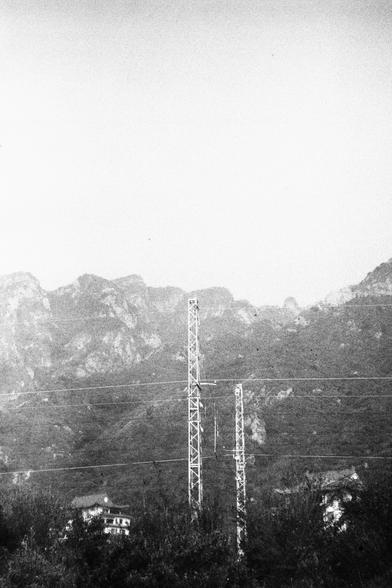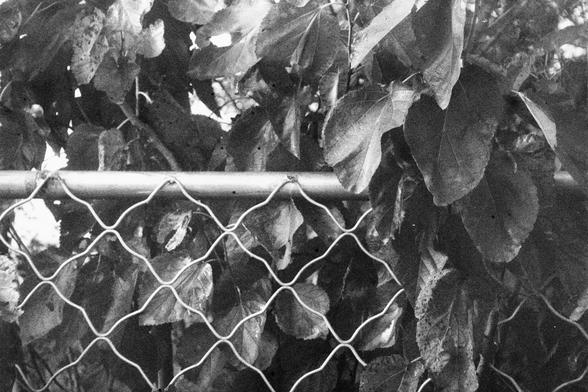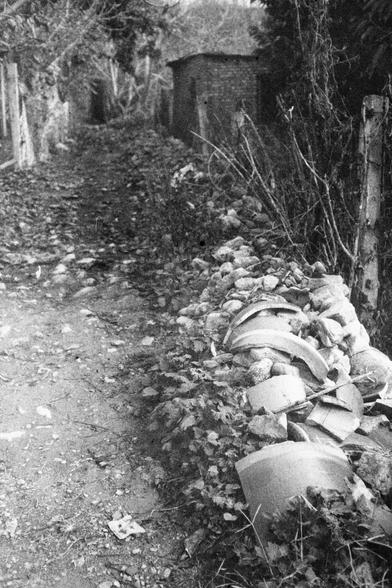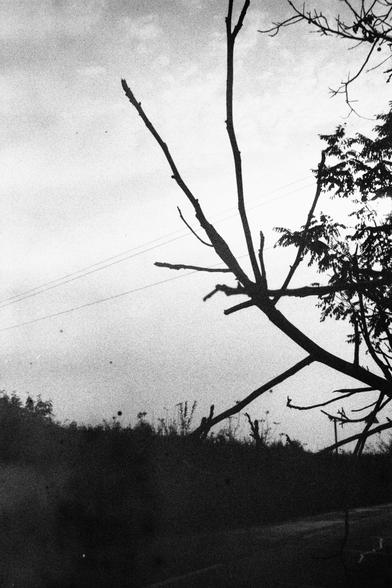2026-01-25 19:03:53
RE: https://techhub.social/@shantini/115957020152303871
Being a marketer shaped my progressive politics more than I expected precisely because of this.
Once you see how much effort is being spent on marketing certain worldviews to you and how much of that can be studied, analyzed, and replicated - you can’t unsee it.
And you see the power that’s available for all of us to tap into to push back. The same kinds of marketing and communication tactics used against us can be used to amplify science, art, pro-social values, and progressive policy.
The right has been waging a coordinated campaign of swaying public opinion since at least the birth of the Federalist Society and backlash to Roe.
Their legal influence required creating an information and media apparatus that influenced first elite professional networks, then the public at large.
(For a recent example, just look at how much LLMS and AI have been relying on constant marketing and media attention for anyone to believe that these tools are “inevitable” or even “useful”. Their marketing and PR departments work very hard and are very well funded. For a reason.)
2026-01-26 19:01:36
2025-12-24 20:40:25
The first seems underspiced/undercheesed but the second one looks interesting. I am suspicious of any Mac & Cheese recipe that does not require the creation of a proper bechamel-based cheese sauce. The 2 methods here (both basically creating the sauce as part of the bake) make me very nervous.
OTOH, I do like the concept of not fretting over a sauce. I am intrigued by the concept of saucing uncooked pasta before baking… @…
2025-12-25 07:28:23
Fully routed the MP2 Kintex test board and added (I think) all of the zone fills I need on outer layers plus the ground plane.
Only thing left is to lay out the power layer, add date/revision/board ID markings, then schematic review (which I normally do before starting layout but skipped because I was making some changes later in the design), and layout review.
2026-02-25 16:08:18
Replaced article(s) found for cs.LG. https://arxiv.org/list/cs.LG/new
[5/6]:
- Watermarking Degrades Alignment in Language Models: Analysis and Mitigation
Apurv Verma, NhatHai Phan, Shubhendu Trivedi
https://arxiv.org/abs/2506.04462 https://mastoxiv.page/@arXiv_csCL_bot/114635190037336859
- Sensory-Motor Control with Large Language Models via Iterative Policy Refinement
J\^onata Tyska Carvalho, Stefano Nolfi
https://arxiv.org/abs/2506.04867 https://mastoxiv.page/@arXiv_csAI_bot/114635187854195641
- ICE-ID: A Novel Historical Census Dataset for Longitudinal Identity Resolution
de Carvalho, Popov, Kaatee, Correia, Th\'orisson, Li, Bj\"ornsson, Sigur{\dh}arson, Dibangoye
https://arxiv.org/abs/2506.13792 https://mastoxiv.page/@arXiv_csAI_bot/114703312162525342
- Feedback-driven recurrent quantum neural network universality
Lukas Gonon, Rodrigo Mart\'inez-Pe\~na, Juan-Pablo Ortega
https://arxiv.org/abs/2506.16332 https://mastoxiv.page/@arXiv_quantph_bot/114732532383196043
- Programming by Backprop: An Instruction is Worth 100 Examples When Finetuning LLMs
Cook, Sapora, Ahmadian, Khan, Rocktaschel, Foerster, Ruis
https://arxiv.org/abs/2506.18777 https://mastoxiv.page/@arXiv_csAI_bot/114738213040759661
- Stochastic Quantum Spiking Neural Networks with Quantum Memory and Local Learning
Jiechen Chen, Bipin Rajendran, Osvaldo Simeone
https://arxiv.org/abs/2506.21324 https://mastoxiv.page/@arXiv_csNE_bot/114754367612728319
- Enjoying Non-linearity in Multinomial Logistic Bandits: A Minimax-Optimal Algorithm
Pierre Boudart (SIERRA), Pierre Gaillard (Thoth), Alessandro Rudi (PSL, DI-ENS, Inria)
https://arxiv.org/abs/2507.05306 https://mastoxiv.page/@arXiv_statML_bot/114822374525501660
- Characterizing State Space Model and Hybrid Language Model Performance with Long Context
Saptarshi Mitra, Rachid Karami, Haocheng Xu, Sitao Huang, Hyoukjun Kwon
https://arxiv.org/abs/2507.12442 https://mastoxiv.page/@arXiv_csAR_bot/114867589638074984
- Is Exchangeability better than I.I.D to handle Data Distribution Shifts while Pooling Data for Da...
Ayush Roy, Samin Enam, Jun Xia, Won Hwa Kim, Vishnu Suresh Lokhande
https://arxiv.org/abs/2507.19575 https://mastoxiv.page/@arXiv_csCV_bot/114935399825741861
- TASER: Table Agents for Schema-guided Extraction and Recommendation
Nicole Cho, Kirsty Fielding, William Watson, Sumitra Ganesh, Manuela Veloso
https://arxiv.org/abs/2508.13404 https://mastoxiv.page/@arXiv_csAI_bot/115060386723032051
- Morphology-Aware Peptide Discovery via Masked Conditional Generative Modeling
Nuno Costa, Julija Zavadlav
https://arxiv.org/abs/2509.02060 https://mastoxiv.page/@arXiv_qbioBM_bot/115139546511384706
- PCPO: Proportionate Credit Policy Optimization for Aligning Image Generation Models
Jeongjae Lee, Jong Chul Ye
https://arxiv.org/abs/2509.25774 https://mastoxiv.page/@arXiv_csCV_bot/115298580419859537
- Multi-hop Deep Joint Source-Channel Coding with Deep Hash Distillation for Semantically Aligned I...
Didrik Bergstr\"om, Deniz G\"und\"uz, Onur G\"unl\"u
https://arxiv.org/abs/2510.06868 https://mastoxiv.page/@arXiv_csIT_bot/115343320768797486
- MoMaGen: Generating Demonstrations under Soft and Hard Constraints for Multi-Step Bimanual Mobile...
Chengshu Li, et al.
https://arxiv.org/abs/2510.18316 https://mastoxiv.page/@arXiv_csRO_bot/115416889485910123
- A Spectral Framework for Graph Neural Operators: Convergence Guarantees and Tradeoffs
Roxanne Holden, Luana Ruiz
https://arxiv.org/abs/2510.20954 https://mastoxiv.page/@arXiv_statML_bot/115445273121677005
- Breaking Agent Backbones: Evaluating the Security of Backbone LLMs in AI Agents
Bazinska, Mathys, Casucci, Rojas-Carulla, Davies, Souly, Pfister
https://arxiv.org/abs/2510.22620 https://mastoxiv.page/@arXiv_csCR_bot/115451397563132982
- Uncertainty Calibration of Multi-Label Bird Sound Classifiers
Raphael Schwinger, Ben McEwen, Vincent S. Kather, Ren\'e Heinrich, Lukas Rauch, Sven Tomforde
https://arxiv.org/abs/2511.08261 https://mastoxiv.page/@arXiv_csSD_bot/115535982708483824
- Two-dimensional RMSD projections for reaction path visualization and validation
Rohit Goswami (Institute IMX and Lab-COSMO, \'Ecole polytechnique f\'ed\'erale de Lausanne)
https://arxiv.org/abs/2512.07329 https://mastoxiv.page/@arXiv_physicschemph_bot/115688910885717951
- Distribution-informed Online Conformal Prediction
Dongjian Hu, Junxi Wu, Shu-Tao Xia, Changliang Zou
https://arxiv.org/abs/2512.07770 https://mastoxiv.page/@arXiv_statML_bot/115689281155541568
- Coupling Experts and Routers in Mixture-of-Experts via an Auxiliary Loss
Ang Lv, Jin Ma, Yiyuan Ma, Siyuan Qiao
https://arxiv.org/abs/2512.23447 https://mastoxiv.page/@arXiv_csCL_bot/115808311310246601
toXiv_bot_toot
2026-01-23 00:30:03
Some City Some Nature 🏙️
一些城一些自然 🏙️
📷 Nikon F4E
🎞️ ERA 100, expired 1993
#filmphotography #Photography #blackandwhite
2026-02-23 09:50:00
Sometimes I feel that I could have my introduction much better. So I'll leave another piece here, and maybe one day I'll be able to find it again and use somewhere…
I'm a radical. I believe that every human has a right to dignity in life. Yes, even these people who allegedly "are too lazy to work".
I believe that everyone deserves safety, that nobody should be cold or starve, that everybody should be able to use a toilet or wash themselves, have access to healthcare and public transportation.
I think that restricting access to drinking water and toilets is a crime against humanity. The latter is also plain stupid, because it only leads to people using other places as toilets.
I'm so tired of the postsoviet labor cult (a kind of Polish thing). Seeing labor as a value in itself. Everyone must work, and it doesn't matter whether the work is actually beneficial, or outright harmful.
And last of all, I can't tolerate smokers. There is no excuse to harm yourself and everyone around you, just to satisfy your stupid addiction. And I'm also talking of all the random people who breathe all the toxins because smokers think they deserve to smoke everywhere, all the time.
2026-01-25 05:30:28
Okay, I missed earlier that the guy who took Pretti's gun *accidentally shot it*. Fucking murder clowns.
https://fed.brid.gy/r/https://bsky.app/profile/did:plc:5o6k7jvowuyaquloafzn3cfw/post/3md7wmr2pyk22
2025-12-23 01:13:06
2026-02-25 16:07:58
Replaced article(s) found for cs.LG. https://arxiv.org/list/cs.LG/new
[3/6]:
- Towards Scalable Oversight via Partitioned Human Supervision
Ren Yin, Takashi Ishida, Masashi Sugiyama
https://arxiv.org/abs/2510.22500 https://mastoxiv.page/@arXiv_csLG_bot/115451787490434401
- ContextPilot: Fast Long-Context Inference via Context Reuse
Yinsicheng Jiang, Yeqi Huang, Liang Cheng, Cheng Deng, Xuan Sun, Luo Mai
https://arxiv.org/abs/2511.03475 https://mastoxiv.page/@arXiv_csLG_bot/115502245581974540
- Metabolomic Biomarker Discovery for ADHD Diagnosis Using Interpretable Machine Learning
Nabil Belacel, Mohamed Rachid Boulassel
https://arxiv.org/abs/2601.11283 https://mastoxiv.page/@arXiv_csLG_bot/115921183182326799
- PhysE-Inv: A Physics-Encoded Inverse Modeling approach for Arctic Snow Depth Prediction
Akila Sampath, Vandana Janeja, Jianwu Wang
https://arxiv.org/abs/2601.17074
- SAGE-5GC: Security-Aware Guidelines for Evaluating Anomaly Detection in the 5G Core Network
Cristian Manca, Christian Scano, Giorgio Piras, Fabio Brau, Maura Pintor, Battista Biggio
https://arxiv.org/abs/2602.03596
- LORE: Jointly Learning the Intrinsic Dimensionality and Relative Similarity Structure From Ordina...
Anand, Helbling, Davenport, Berman, Alagapan, Rozell
https://arxiv.org/abs/2602.04192
- Towards Robust Scaling Laws for Optimizers
Alexandra Volkova, Mher Safaryan, Christoph H. Lampert, Dan Alistarh
https://arxiv.org/abs/2602.07712 https://mastoxiv.page/@arXiv_csLG_bot/116046369672796465
- Do We Need Adam? Surprisingly Strong and Sparse Reinforcement Learning with SGD in LLMs
Sagnik Mukherjee, Lifan Yuan, Pavan Jayasinha, Dilek Hakkani-T\"ur, Hao Peng
https://arxiv.org/abs/2602.07729 https://mastoxiv.page/@arXiv_csLG_bot/116046377539155485
- AceGRPO: Adaptive Curriculum Enhanced Group Relative Policy Optimization for Autonomous Machine L...
Yuzhu Cai, Zexi Liu, Xinyu Zhu, Cheng Wang, Siheng Chen
https://arxiv.org/abs/2602.07906 https://mastoxiv.page/@arXiv_csLG_bot/116046423413650658
- VESPO: Variational Sequence-Level Soft Policy Optimization for Stable Off-Policy LLM Training
Guobin Shen, Chenxiao Zhao, Xiang Cheng, Lei Huang, Xing Yu
https://arxiv.org/abs/2602.10693 https://mastoxiv.page/@arXiv_csLG_bot/116057229834947730
- KBVQ-MoE: KLT-guided SVD with Bias-Corrected Vector Quantization for MoE Large Language Models
Zukang Xu, Zhixiong Zhao, Xing Hu, Zhixuan Chen, Dawei Yang
https://arxiv.org/abs/2602.11184 https://mastoxiv.page/@arXiv_csLG_bot/116062537528208461
- MUSE: Multi-Tenant Model Serving With Seamless Model Updates
Correia, Ferreira, Martins, Bento, Guerreiro, Pereira, Gomes, Bono, Ferreira, Bizarro
https://arxiv.org/abs/2602.11776 https://mastoxiv.page/@arXiv_csLG_bot/116062952355379801
- Pawsterior: Variational Flow Matching for Structured Simulation-Based Inference
Jorge Carrasco-Pollo, Floor Eijkelboom, Jan-Willem van de Meent
https://arxiv.org/abs/2602.13813 https://mastoxiv.page/@arXiv_csLG_bot/116085828112928218
- Silent Inconsistency in Data-Parallel Full Fine-Tuning: Diagnosing Worker-Level Optimization Misa...
Hong Li, Zhen Zhou, Honggang Zhang, Yuping Luo, Xinyue Wang, Han Gong, Zhiyuan Liu
https://arxiv.org/abs/2602.14462 https://mastoxiv.page/@arXiv_csLG_bot/116085997857526328
- Divine Benevolence is an $x^2$: GLUs scale asymptotically faster than MLPs
Alejandro Francisco Queiruga
https://arxiv.org/abs/2602.14495 https://mastoxiv.page/@arXiv_csLG_bot/116086011618741857
- \"UberWeb: Insights from Multilingual Curation for a 20-Trillion-Token Dataset
DatologyAI, et al.
https://arxiv.org/abs/2602.15210 https://mastoxiv.page/@arXiv_csLG_bot/116090912256712568
- GLM-5: from Vibe Coding to Agentic Engineering
GLM-5-Team, et al.
https://arxiv.org/abs/2602.15763 https://mastoxiv.page/@arXiv_csLG_bot/116091080686771018
- Anatomy of Capability Emergence: Scale-Invariant Representation Collapse and Top-Down Reorganizat...
Jayadev Billa
https://arxiv.org/abs/2602.15997 https://mastoxiv.page/@arXiv_csLG_bot/116096541546306333
- AI-CARE: Carbon-Aware Reporting Evaluation Metric for AI Models
KC Santosh, Srikanth Baride, Rodrigue Rizk
https://arxiv.org/abs/2602.16042 https://mastoxiv.page/@arXiv_csLG_bot/116096581524696028
- Beyond Message Passing: A Symbolic Alternative for Expressive and Interpretable Graph Learning
Chuqin Geng, Li Zhang, Haolin Ye, Ziyu Zhao, Yuhe Jiang, Tara Saba, Xinyu Wang, Xujie Si
https://arxiv.org/abs/2602.16947 https://mastoxiv.page/@arXiv_csLG_bot/116102426238903124
toXiv_bot_toot








